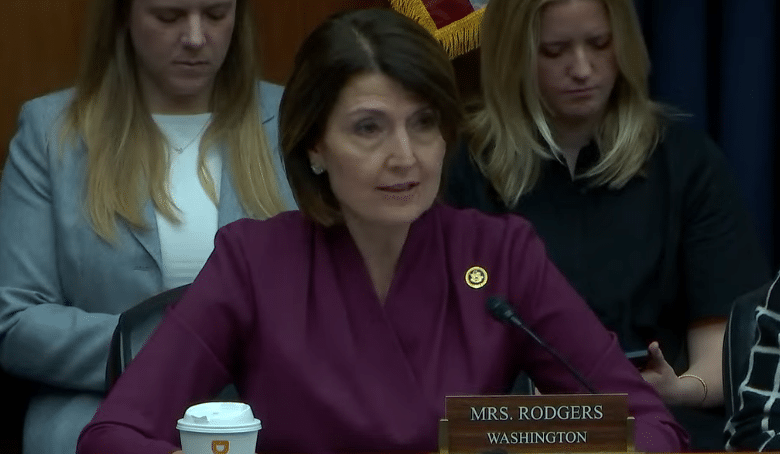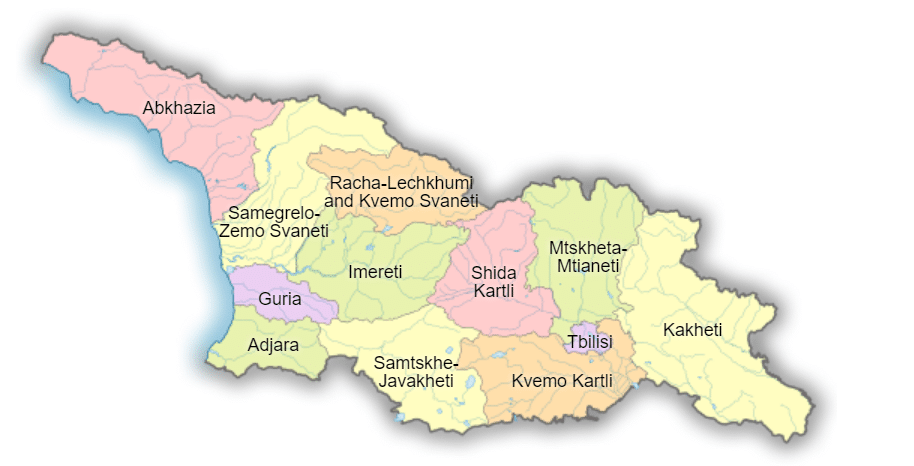May 28, 2024
Permission to republish original opeds and cartoons granted.
The Section 230 Sunset Act is Irresponsible and Dangerous

By Rick Manning
House Energy and Commerce Committee Chair Cathy McMorris Rodgers (R-WA) and Ranking Member Frank Pallone (D-NJ) have released the Section 230 Sunset Act, which would end Section 230 of the Communications Decency Act.
This bill would be a disaster for millions of interactive computer services, including websites, e-commerce stores, and other small businesses.
The legislation states, “This section shall have no force or effect after December 31, 2025.” In a May 12 Wall Street Journal op-ed, McMorris-Rodgers and Pallone instead propose creating an emergency that threatens to break the internet: “Big Tech [has] a choice: Work with Congress to ensure the internet is a safe, healthy place for good, or lose Section 230 protections entirely.” And if an alternative could not be agreed upon by Congress, millions of websites, e-commerce stores, and other interactive computer services would be held liable for their user networks.
Let’s be clear about what is at stake. Section 230 protects platforms like eBay, YouTube, X, Truth Social, Rumble from liability claims over content posted by users. The ability of people to post reels on Facebook or product offerings on eBay would end. The protection Section 230 provides from a swarm of trial lawyers filing grievance lawsuits looking to squeeze dollars out of social media platforms is essential to a functioning interactive internet.
This internet liability shield in Section 230 is succinctly stated under the law: “No provider or user of an interactive computer service shall be treated as the publisher or speaker of any information provided by another information content provider.”
Publishers and speakers can be held liable for malice, slander, or libel under the current law because they actively control what is printed on their pages and, as a result, are responsible for their contents. However, internet platforms that allow content providers access to their web space are currently protected from these claims. The removal of Section 230 protections would force a review of every post on every website, resulting in the entire internet system we know breaking under the threat of civil litigation.
While millions of websites would be effectively forced to become one-way communications tools, denying hundreds of millions of people in America the ability to post a product for sale or voice an opinion to an audience that chooses to follow them, some big tech companies like Microsoft, which has little investment in interactive platforms, would benefit as their competitors business models were effectively destroyed.
Many conservatives, including this one, have been concerned about shadow banning and other efforts to inhibit the distribution of information by interactive internet companies. Over the past year, we have learned that much of that concern was driven by federal government officials who regularly targeted speech topics like COVID and election integrity in their demands for social media companies to restrict their distribution. Federal officials seeking to intimidate social media companies into censoring speech that they cannot due to the First Amendment to the Constitution are the problem Congress should address.
And the answer to that problem is for Congress to end the allowance for the Department of Homeland Security to demand speech control through the 2018 CISA law and to specifically hold the Federal Bureau of Investigation accountable for their actions directing the takedown of political speech at X (then Twitter), Facebook, and other platforms.
To completely dismantle the way internet interactivity works in an attempt to extort unnamed changes from social media companies is both foolish and dangerous. Any reasonable observer of the way Congress works knows that hard deadlines don’t always result in good legislation. When it comes to governance of the internet, it is irresponsible to put a timetable on its destruction as we know it, and expect the extortion to bear good results.
This is particularly true since the lead sponsor of the legislation, Cathy McMorris Rodgers, is retiring and won’t be in Congress to deal with the mess that she will have created.
Congress should reject the Section 230 Sunset Act as little more than dangerous pot stirring that doesn’t bother to put forward any answers. As a child, it may have made sense to say, “Let’s see what happens if I push this button,” but as adults, we have a responsibility to foresee the worst possible consequences and seek to avoid them. On the McMorris Rodgers-Pallone bill, Congress needs to act like adults and not push a button with full knowledge of the disastrous consequences that could very likely result.
Rick Manning is the President of Americans for Limited Government.
To view online: https://amgreatness.com/2024/05/25/the-section-230-sunset-act-is-irresponsible-and-dangerous/
Video: Harrison Butker Is 100% Right About Traditional Values

To view online: https://www.youtube.com/watch?v=0QCx6b4A3DY
If Georgia can regulate foreign money and influence, why can’t the U.S.?

By Bill Wilson
For once, I agree with the Washington Post – widely viewed as the newsletter of the deep state intel “community.” I agree with their oft-repeated slogan that Democracy Dies in the Dark. Now, if they could just move to apply that admonishment to countless issues that are now rising across the world.
This point came to me as I read the fear and loathing about a piece of new legislation in the nation of Georgia – not the RINO directed southern state but the country that borders the Black Sea. Last week their Parliament passed legislation that required any NGO (Non-Governmental Organization) that received more than 20 percent of their funding from outside the country to register as “agents of foreign influence.” As expected, the United States and its minions at the EU and NATO loudly condemned the legislation and demanded it be blocked. In what has become the knee-jerk reaction of the “collective west,” there have been threats of retaliation, exclusion, and of course financial harm.
It appears Georgia will not bend to the intimidation tactics. While the country’s President is expected to veto the bill, there are more than enough votes to override her. So, this measure is about to become law. Despite crowds of protesters and coordinated media attacks reminiscent of the CIA directed “color revolutions, Georgia is taking a stand for their Democracy not living in the dark.
Which brings the question – why shouldn’t such a law or something similar be enacted in the United States? The NGOs are all too-often those shadowy entities that allow governments to do things they are not allowed to do or that they want kept “in the dark” to the public. Let’s clean these underhanded, likely illegal actions up, let’s expose them to the cleansing sunlight of disclosure.
No less an authority than Texas Senator Ted Cruz has raised this issue. He has called on the Department of Justice and the FBI to investigate the funding behind the manufactured protests on American college campuses. During a May 15 edition of his podcast, The Verdict, Senator Cruz referenced a report by the Network Contagion Research Institute (NCRI) alleging deep ties between the protest organizing group and the Chinese Communist Party.
Senator Cruz hit the nail on the head with such funding. He said, “What does China care about Hamas? What does China care about Israel? The truth of the matter is they don’t; but they care about America, they care about tearing our country apart, they care about chaos and fomenting dissent that paralyzes our country.”
And that is the core of the issue. Why should we, as a nation, allow outsiders to fund operations inside our country that harm us? And if we are against the use of such dangerous and underhanded tactics against us, what is the justification for using them against others? And a final question – why do we demand the right to control or interfere in the affairs of every nation on earth and then take a stance of puritanical pearl-clutching when a small Eurasian country takes a stand for their own sovereignty?
So, in the next week or so when the law in Georgia is finally affirmed and you read stories in the controlled, corporate press of how horrible it is, realize that the people of Georgia are taking a stand for their Democracy to live in the light. We need to do the same.
Bill Wilson is the former President of Americans for Limited Government.
To view online: https://dailytorch.com/2024/05/if-georgia-can-regulate-foreign-money-and-influence-why-cant-the-u-s/
